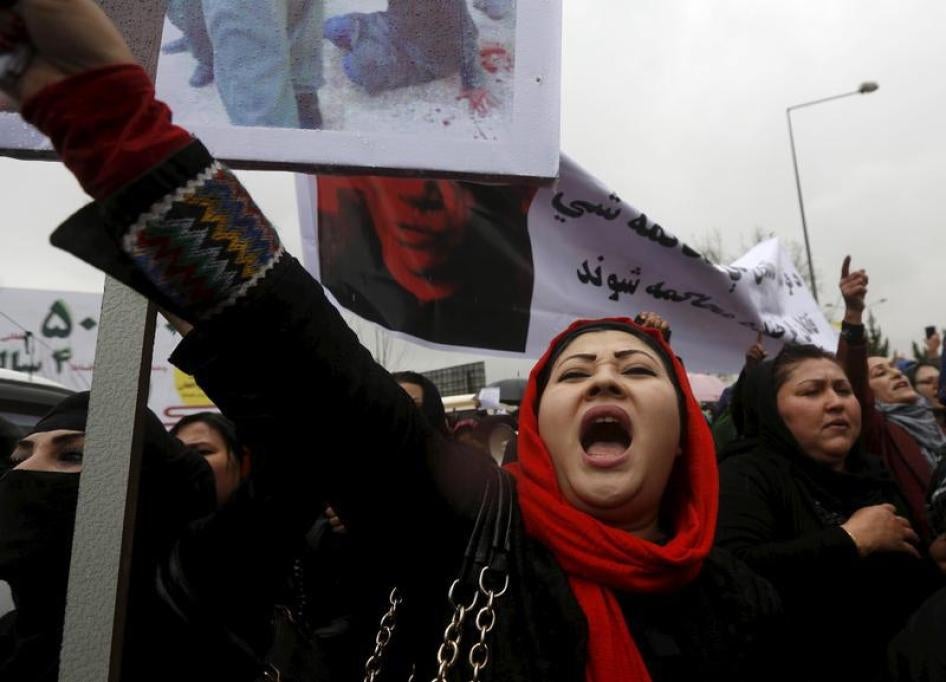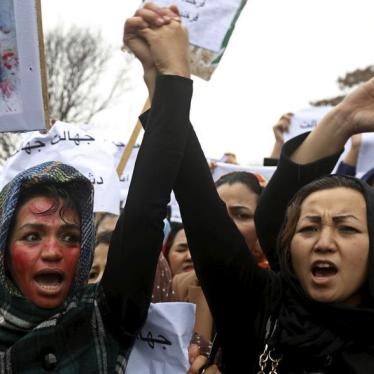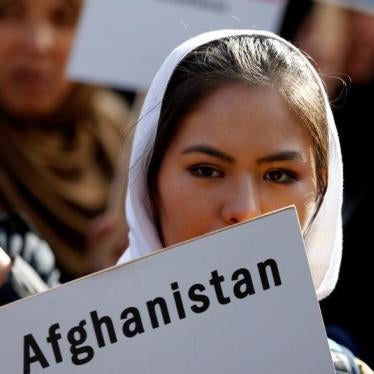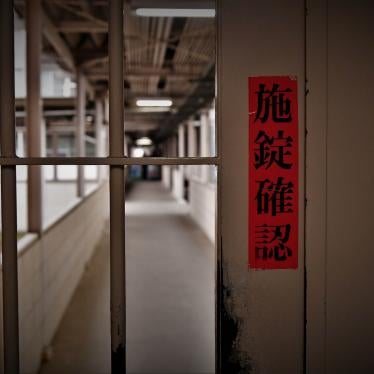It seemed like a breakthrough. In 2009, when then-President Hamid Karzai signed Afghanistan’s Law on the Elimination of Violence Against Women (EVAW Law), women’s rights activists celebrated a hard-won victory. They looked to a future where Afghan women and girls – about 87 percent of whom experience abuse in their lifetimes – would finally see justice.
But a United Nations report this week confirms what activists have known for years – that violence against women is still largely ignored by the Afghan criminal justice system. A young woman, “Soraya,” recently told Human Rights Watch that after her husband attacked her with a knife, and her father-in-law raped her, she went to the police. When she tried to file charges, an officer told her, “We are not going to register your case – it is not important enough. You should resolve this with your family.”
UN researchers reviewed 237 cases of women and girls who sought justice, and found that Soraya’s experience was typical – most cases never reached a court. Instead, authorities routinely turned victims away or referred them to – and pressured them to accept – mediation. Mediation is used – in clear violation of the EVAW Law – even when women suffered crimes such as rape, acid attacks, and forced prostitution.
The UN also reviewed 280 murders of women, including so-called “honor killings.” Only 50 cases led to convictions, and the vast majority were never heard by the courts; some of these cases were likely resolved through mediation.
Mediation does not provide justice to female victims of serious crimes. At best, it offers victims an often-empty promise from her abuser not to repeat the crime. At worst, mediators themselves inflict abuse, for example by ordering girls or women to be given as compensation for murder, forcing women and girls to marry men who raped them, or excusing murder in the name of “honor.”
Despite promising to adopt a “zero tolerance” policy toward violence against women, current President Ashraf Ghani has not done so. This became clear in 2015 when a young woman, Farkhunda Malikzada, was beaten to death by a mob in Kabul after being falsely accused of burning the Quran. Ghani’s government not only let most of her murderers escape justice, but also ignored public demands for more action to combat violence against women. Ghani should direct Afghanistan’s police and prosecutors to prosecute cases diligently, and also discipline or fire officials who treat victims the way the police treated Soraya. He has done neither.
Afghanistan’s women still have a long hard fight ahead of them.









